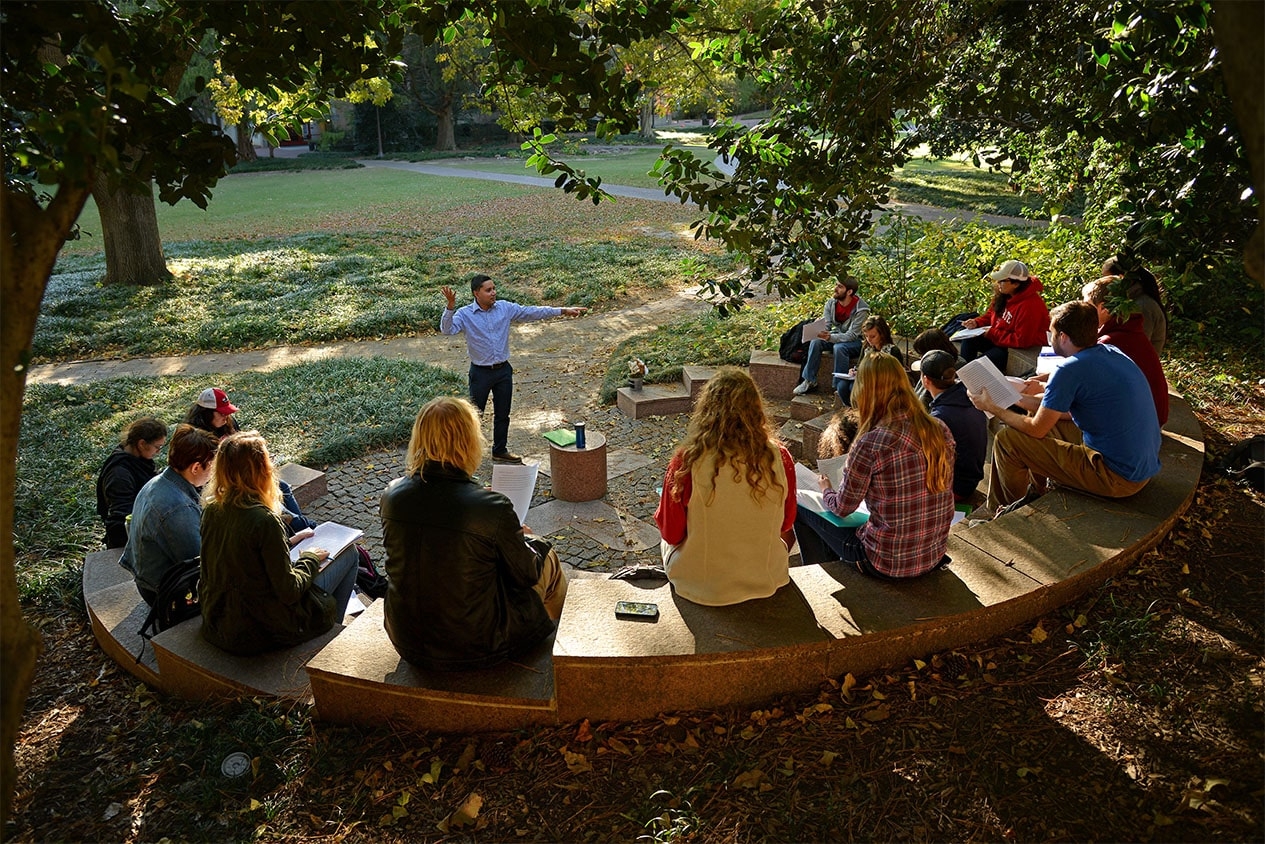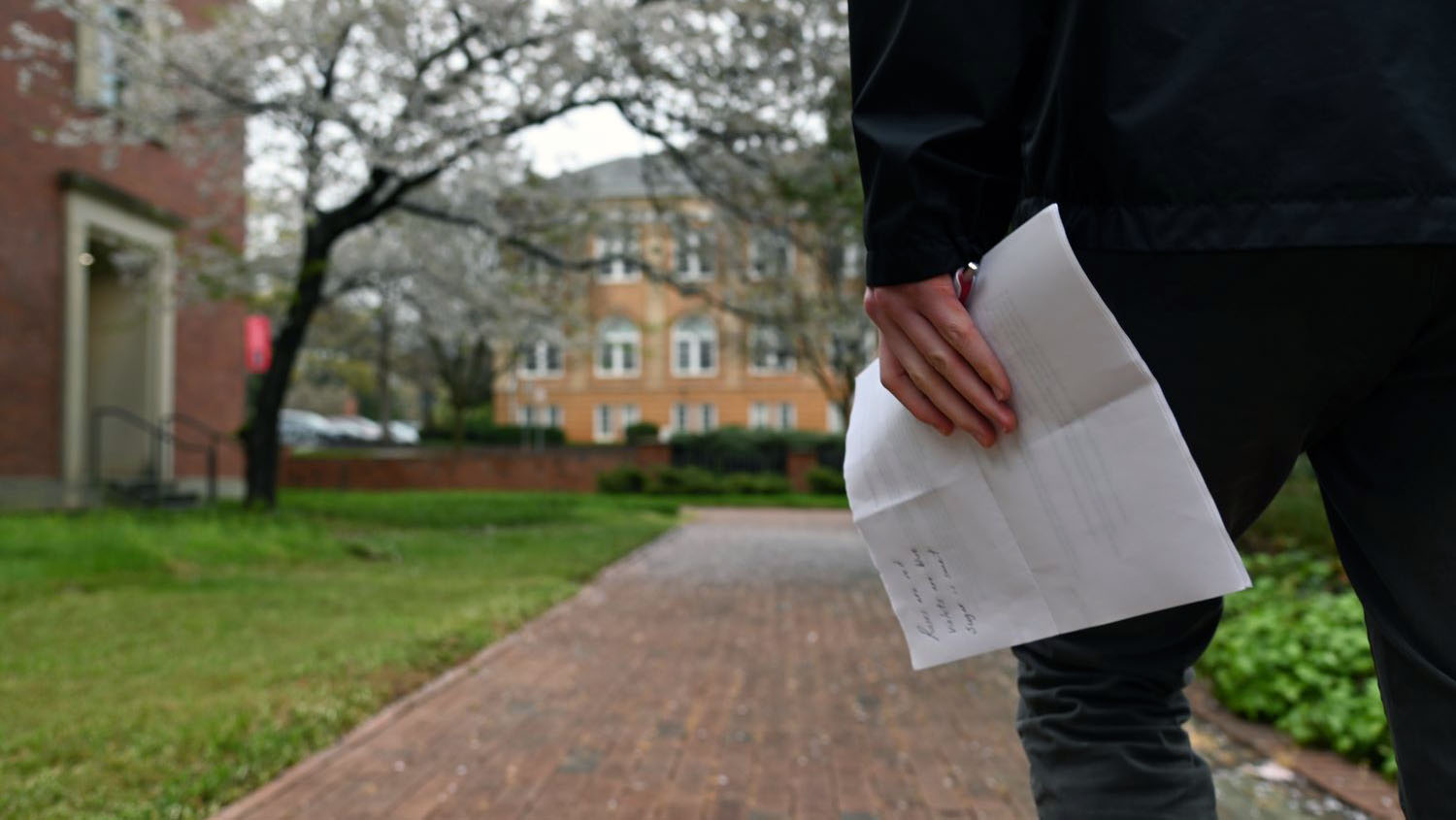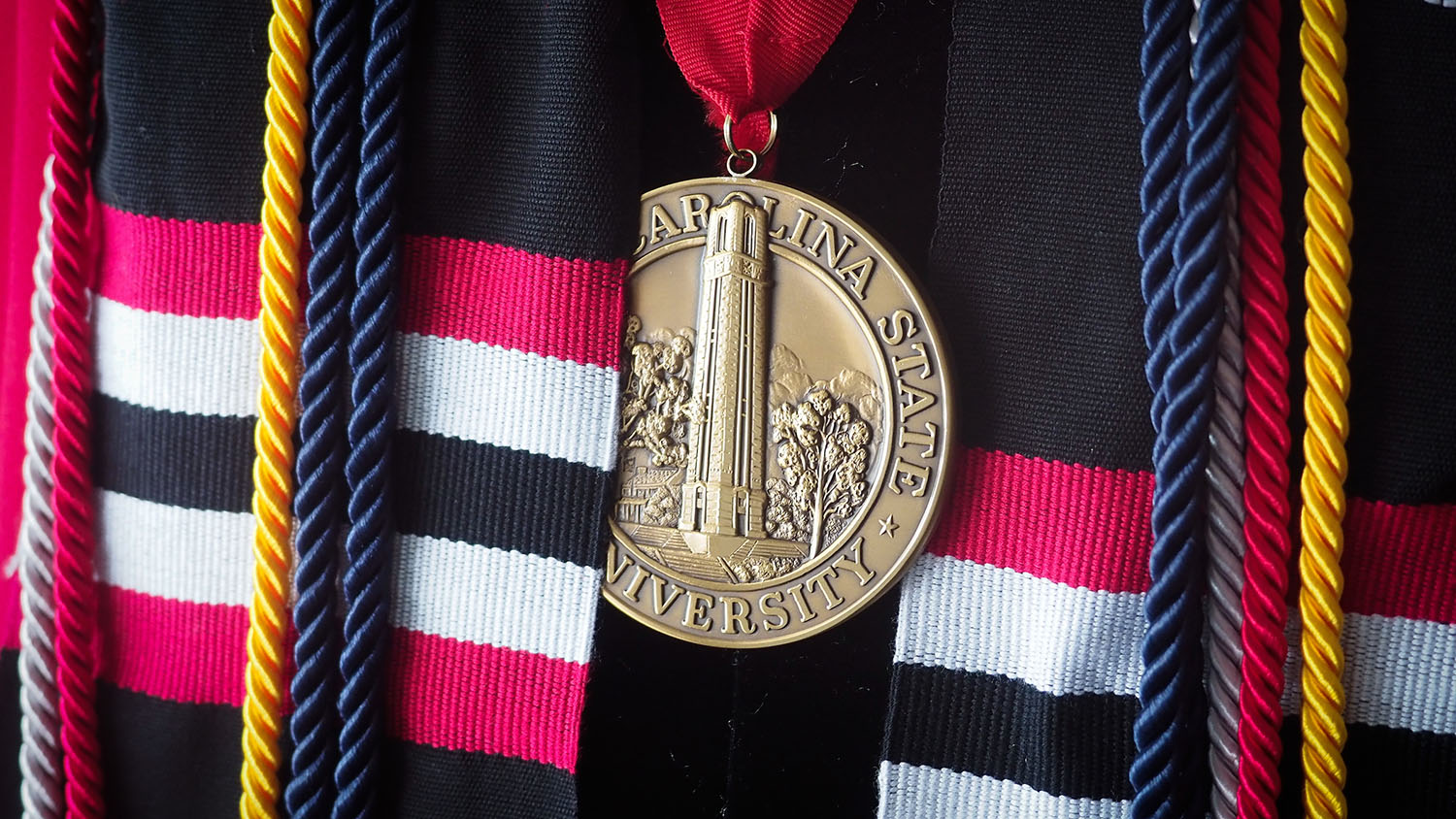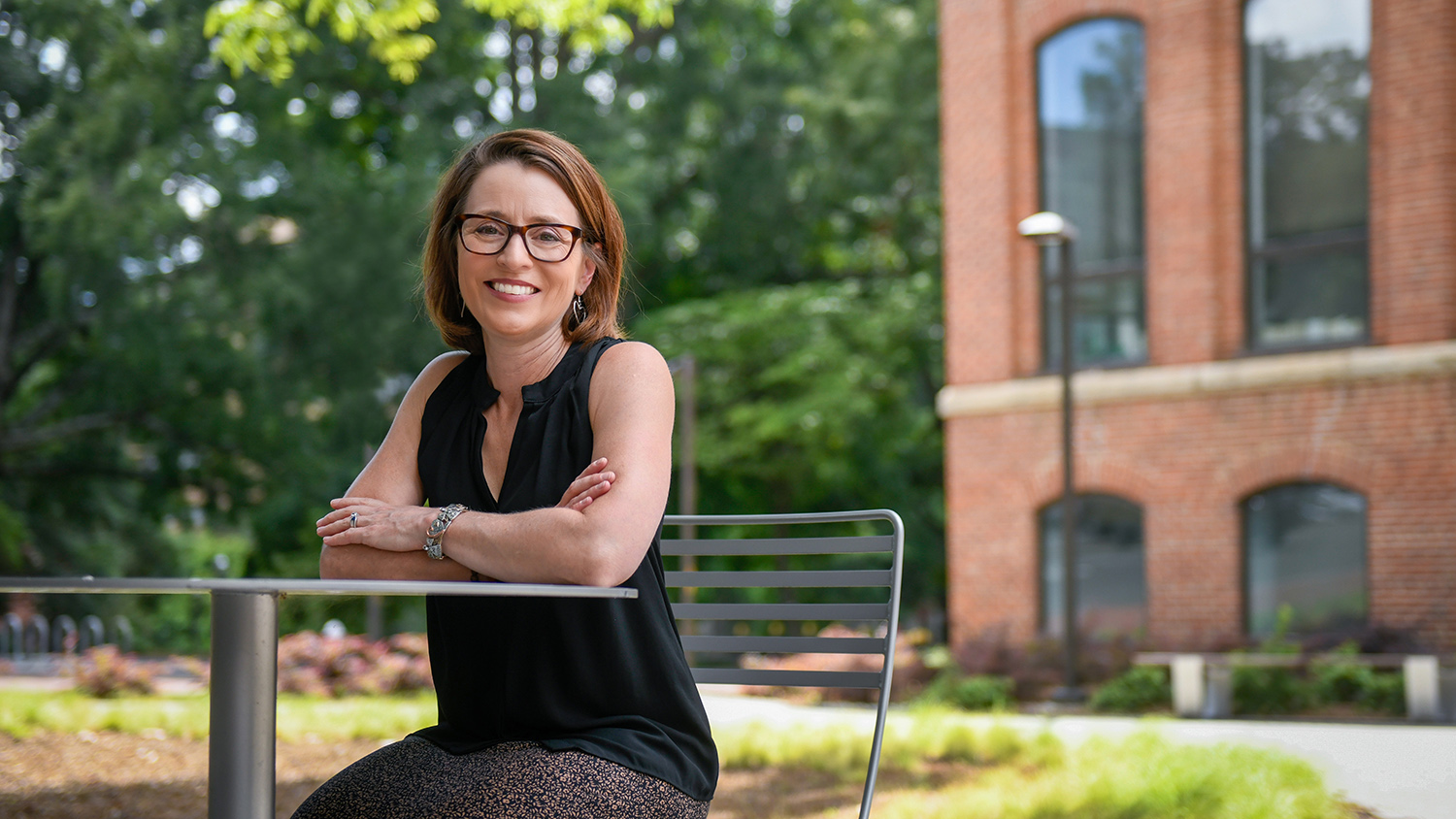A student passionate about genetics explores the social implications of biological technology in her speculative science fiction class. An undergraduate studying economics analyzes cultural connections between Peru and Japan — and finds a community that shares his love for dance and music — while studying abroad in Tokyo. Another student finds her voice in leading civil rights events and helping students harness their collective power while studying social work and philosophy.
Their majors vary widely, but in the College of Humanities and Social Sciences (CHASS), these three students have found the perfect place to explore interdisciplinary interests where their creativity and curiosity meet. CHASS’s diverse programming equips students to think critically and advocate for human-centered solutions to complex problems. Enrolling in a liberal arts college at a STEM-intensive university allows students to gain relevant skills to shape how innovation serves society as a whole.
Studying the Human Experience
Alexander Hamilton Scholar Yasser Cardenas is a senior pursuing a dual degree — a bachelor of arts in international studies focusing on global cultural studies and a bachelor of science in economics. Hamilton Scholars are a select group of students who work toward dual degrees from CHASS and the Poole College of Management in order to pursue globally focused careers in business, government, nonprofit or humanitarian fields.
The dual degree in economics and international studies is a logical fit, Cardenas believes because economics is more than just crunching numbers. Understanding what the numbers represent and what they mean within a social context gives his economics degree greater depth and perspective.
“Economics is data from real people,” Cardenas said. “In order to better understand it, I feel humanities is important.”
Cardenas loved his Introduction to International Studies class taught by assistant teaching professor Tatiana Rabinovich, because it helped him analyze and appreciate different global perspectives. This class, along with his studies in literature and history, has given him a more comprehensive understanding of the world, deepening his cultural competency and enhancing his ability to engage with different cultures.”
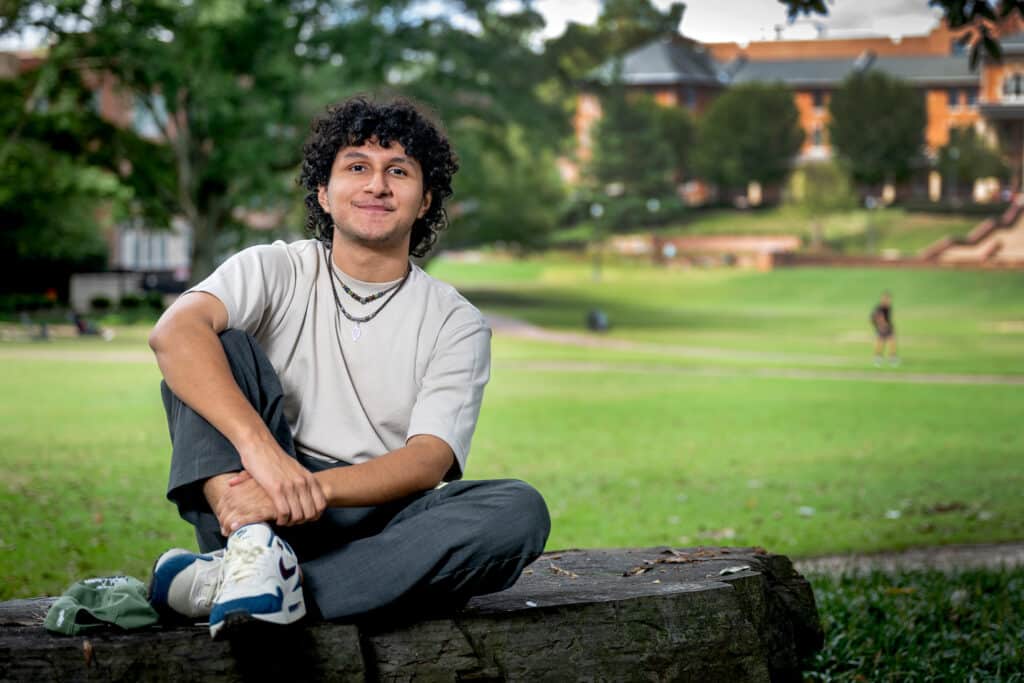
Cardenas is from Lima, Peru, and his studies through CHASS have allowed him to take a global perspective to the next level by studying abroad in Japan. Study abroad programming is integrated into the popular international studies curriculum, and CHASS is a university leader in the number of students it sends to study in another country.
Flexibility in Finding One’s Path
CHASS supports students looking to define their own path that resonates with their individual interests and goals through interdisciplinary degrees.
Brooke Church was able to combine her passions for genetic science, technology and public policy through the bachelor of science in science, technology and society (STS). A senior from Wilkes County, Church worked closely with her academic advisor to customize a degree that reflected her interests in genetics and the ethics behind the science.
“I was fortunate to have them work with me and build something that I was really passionate about in all aspects,” Church said.
The STS degree allows students to explore courses in advanced sciences and technology in addition to their humanities courses. Although NC State doesn’t have a medical school, an STS degree can give students a solid foundation for a pre-med track or pre-health pathway.
“If you’re interested in learning more about the human relationship with science, and how it’s woven into everyday social life and communications, then I think [STS] is a great plan,” Church said.
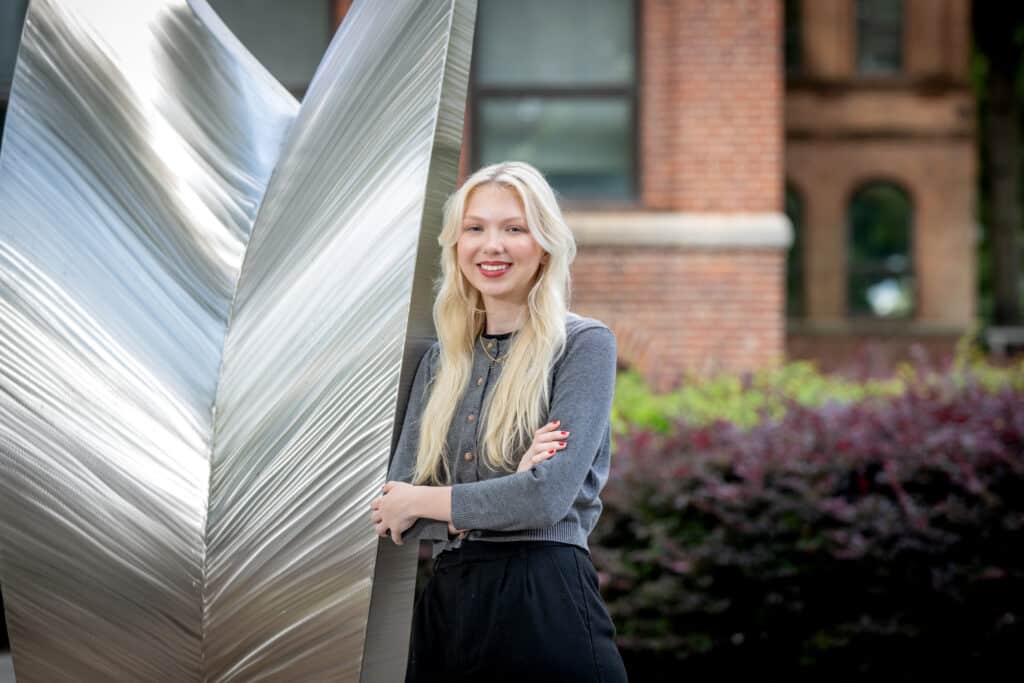
She believes the interdisciplinary STS major has given her a strong science background while enabling her to engage with the public on the topic of science. She works as a museum instructor at the N.C. Museum of Natural Sciences, where she experiences the value of talking about science to the public, from the children she teaches to their parents. Church believes that CHASS is giving her a strong foundation to think critically about the social implications — and impact — of scientific research.
“As a scientist, you want to have this ability to connect with people,” Church said. She believes that science needs to be more inclusive and accessible to everyone.
Church has worked as a lab assistant at NC State for a year now through the Office of Undergraduate Research. She is confident that the STS program has equipped her with not only the skills to engage the ethical and social sides of science but also the experience to work in a lab professionally as a scientist.
“You don’t have to give up science,” Church said, whose research poster on a sex-determination chromosome in Cichlid fish won a prize through NC State’s Genetics and Genomics Academy.
A Community of Collective Power
Social justice and making a positive community impact inspire many CHASS students. Rose Amburose is one such undergrad. Amburose calls Boone, North Carolina, her hometown in the U.S. while also being an international student from India. She’s a Park Scholar and a legal intern at The Child’s Advocate.
Initially, Amburose started a degree in business administration, but a philosophy course on existentialism taught by Marina Bykova led her to switch to pursue bachelor’s degrees in social work and philosophy. Amburose is in the philosophy of law concentration and wants to become a lawyer.
Interdisciplinary majors and minors in CHASS are designed to give their graduates the transferable skills they’ll need in various careers in the humanities and sciences fields.
“The fact that CHASS has unique concentrations like Philosophy of Law with professors who are interested in bridging the gap between theoretical philosophy and practical fields allows students to pursue interdisciplinary learning,” Amburose said.
Many CHASS undergraduates seek first-hand experiences with community engagement. They can find them through internships or undergraduate research on faculty-led projects that address challenges such as responsible automation and AI, cultural preservation or substance abuse through the opioid epidemic.
As a sophomore in 2022, Amburose founded the Progressive Student Task Force (PSTF) at NC State in response to the 2022 Supreme Court decision to overturn the constitutional right to abortion in the United States. Demonstrations and protests had erupted around the country, and Amburose and the other students of the PSTF were inspired to create a space to gather and protest at NC State.
“We call ourselves a task force because we want to do more than just talk about social issues. We want to do something about it,“ said Amburose, whose service and student leadership was recognized with the 2024 National Association of Social Workers North Carolina Chapter Equity and Inclusion Student Award and the NC State’s Council on the Status of Women’s Equity for Women Award in 2023.
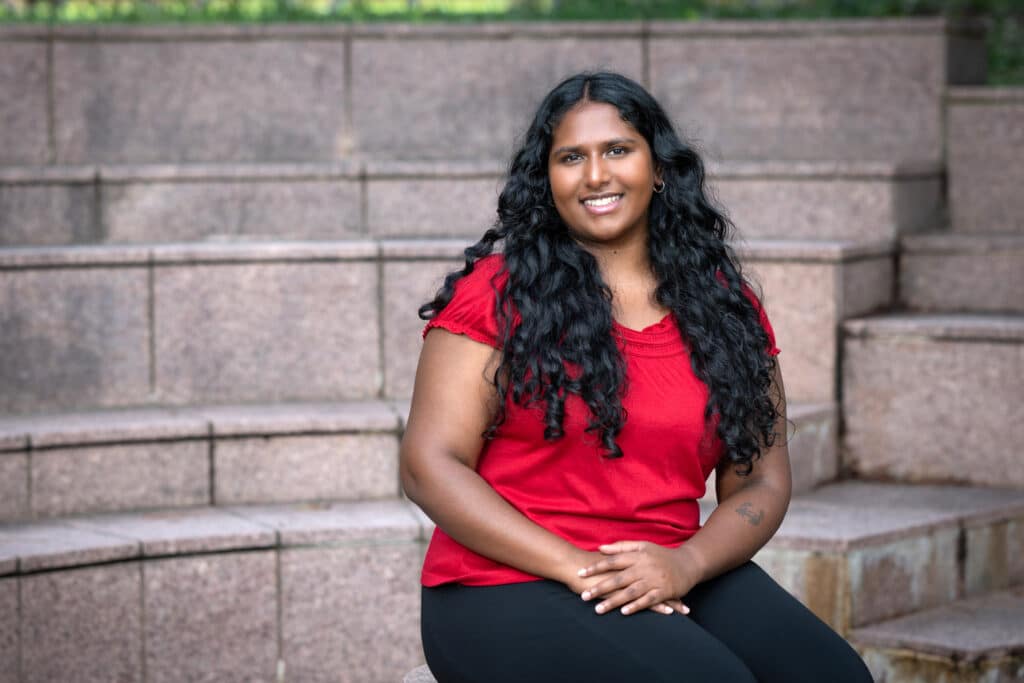
With 200 attendees, the PSTF hosted a reproductive rights march and recruited U.S. Congresswoman Deborah Ross and North Carolina State Senator Natalie Murdoch to speak. Since then, the PSTF has addressed topics like gun violence, climate change and the war on Gaza.
“It was an incredible demonstration of the collective power that students have,” said Amburose.
Student groups can also petition the CHASS Council for funding, something the PSTF did to raise money for a 2023 event called Drag for Equality, a drag show to raise funds for the local LGBT Center of Raleigh.
The event demonstrated to Amburose just how practical her coursework has been. She had to put her study of philosophy to the test when engaging with ethical dilemmas like wanting to hold a drag show while acknowledging that the PSTF had limited funds to pay the artists. The organizers had discussions around the ethics of pay transparency and what represented appropriate wages. Including the performers in these discussions, PSTF found ways to provide ethical compensation through alternate funding sources like integrating tipping and mutual aid options.
“To solve these ethical dilemmas, or to at least find a way to discuss them, we have to use ethical principles like harm reduction, fairness, and more,” Amburose said.
By supporting student groups like PSTF, CHASS fosters meaningful learning outside the classroom. Amburose said that PSTF translated into transferable skills for its student members. Each event requires months of planning in marketing, logistics, drawing up contracts, and much more, giving its student members a means to build community and add leadership experience to their resumes.
Empathy, Relationships and Community
CHASS not only explores all facets of the human experience, it embraces them. The professors encourage exploration not only of the subject matter but also through examining our societies, cultures and selves. While CHASS is the second largest college, students can find a close-knit community and opportunities to build supportive relationships.
CHASS encourages students to explore the many sides of the human experience, cultivating empathy along the way – and specifically cares for whole-self wellness. The college has its own wellness center, and an embedded counselor, Jenn Archer, has made it a safe and cozy space with regular drop-in hours for students. A year-round emphasis on wellness and practicing self-care adds to an environment where students are welcome to show up authentically as who they are.
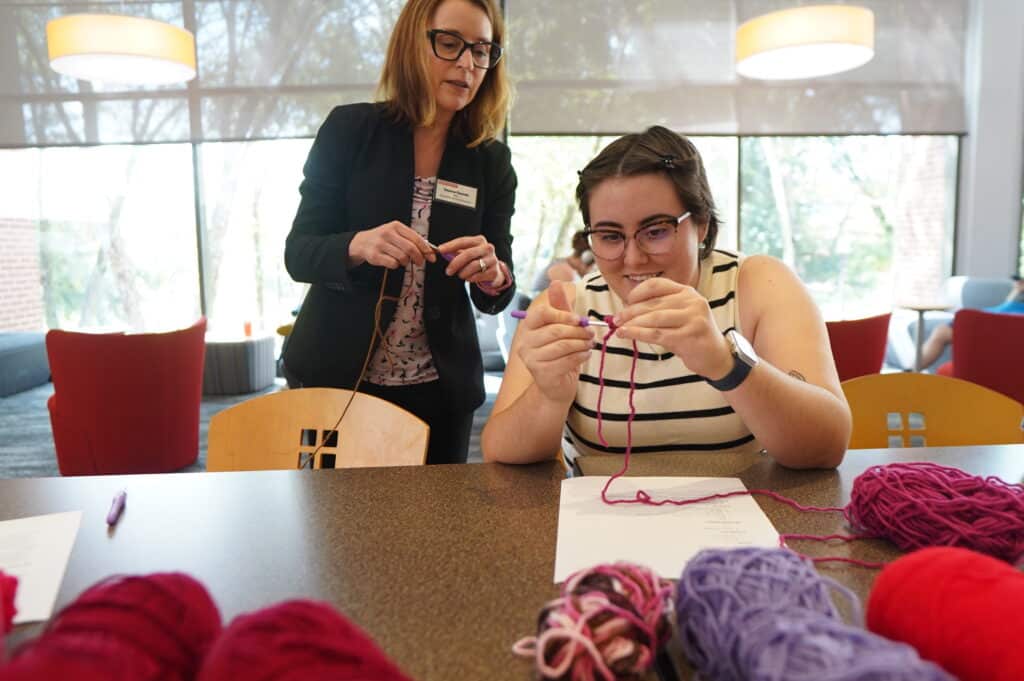
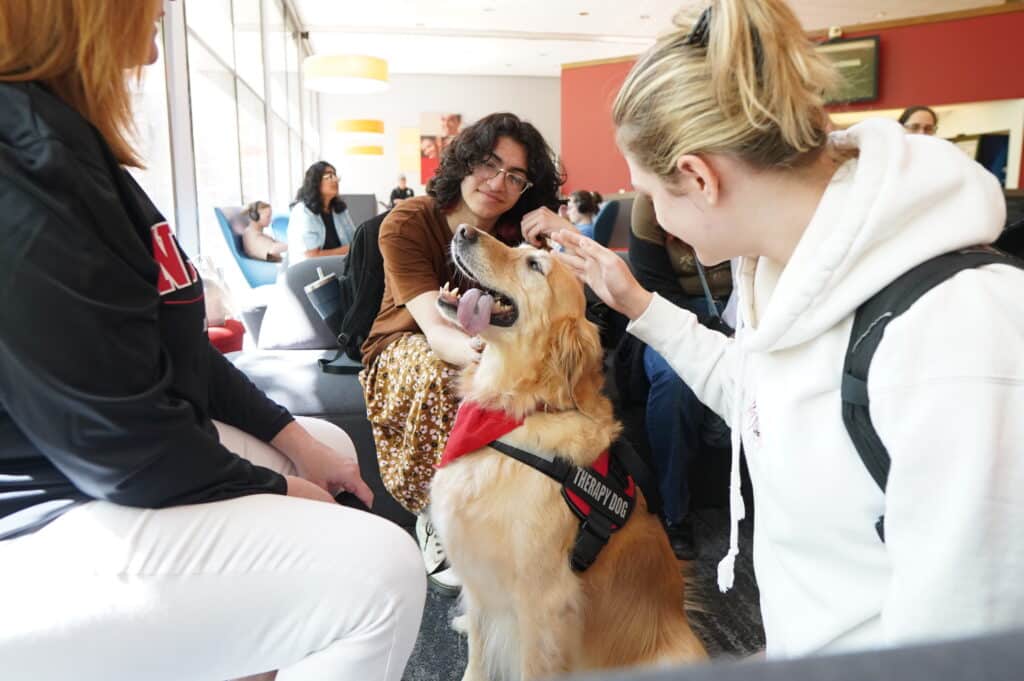
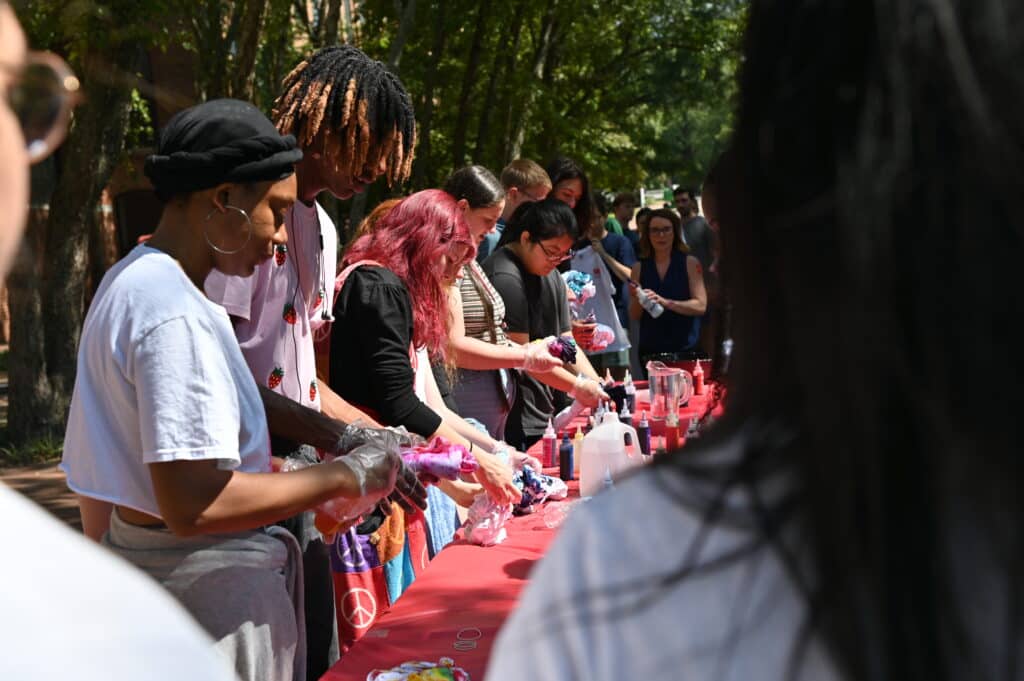
Deanna Dannels, the dean of CHASS, creates an environment prioritizing wellness and belonging for students, faculty and staff. She’s also known to don a few Star Wars-inspired costumes as a reminder that we can all benefit from not taking ourselves too seriously and having a bit of fun.
At the core of the humanities and social sciences are the social and philosophical questions of what makes us human. At CHASS, such questions drive its culture of creativity, inquiry and curiosity. Students seeking to understand and engage the grand challenges of our time will find plenty of opportunities at CHASS — and the preparation for a fulfilling future.
This post was originally published in NC State News.
